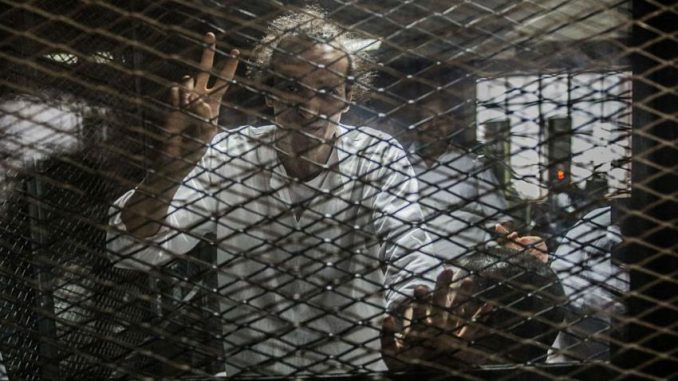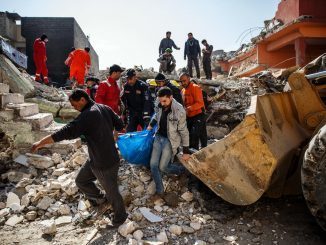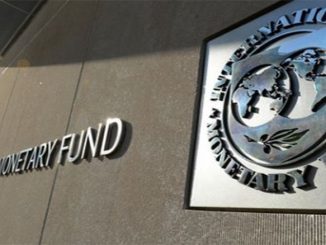
Egypt has faced strong criticism at a United Nations review of its rights record, with diplomats voicing alarm over detention conditions and shrinking freedoms in the country recently rocked by mass protests.
The United States and other Western countries urged Egypt on Wednesday to investigate reported killings and torture by its security forces and to release journalists and others arrested for exercising their right to freedom of expression.
Egypt has been trying to deflect criticism of its rights record and prison conditions ahead of the United Nations review that follows a new wave of arrests. Cairo says it is trying to balance fighting terrorism with respecting rights.
The U.N. Human Rights Council in Geneva is reviewing Egypt’s record for the first time in five years as part of a regular examination of all U.N. member states.
“While recognizing the terrorism threat Egypt faces, we call upon the government to better counter that threat by easing restrictions on freedoms of expression, peaceful assembly, and association, and by ensuring fair trial guarantees,” U.S. rights counselor Daniel Kronenfeld told the Council.
Kronenfeld urged Egypt to “address impunity by credibly investigating allegations of extrajudicial killings, torture, and forced disappearances by security forces, publicly release findings, and prosecute those responsible”.
The United States left the U.N. forum in 2018 and only attends the reviews of member states.
Britain and Sweden also voiced concern at Egypt’s restrictions on activists, including through arrests, travel bans and asset freezes.
The head of Egypt’s delegation defended the record of President Abdel Fattah al-Sisi’s government, saying there was a “blanket prohibition” on torture, though he added there may be “isolated cases”.
“During the past five years, many criminal and disciplinary actions were taken for incidents related to torture, many trials were organized against perpetrators of torture and ill-treatment,” said Omar Marwan, Minister of Parliamentary Affairs.
Crackdown
Egypt’s latest wave of arrests, which rights activists say was the most intensive for years, came after rare protests against Sisi in Cairo and other cities in late September.
Around 3,000 people, including lawyers and academics, are being held under charges such as using social media to spread false news, joining a banned terrorist group, and protesting without a permit, the Egyptian Commission for Rights and Freedoms says.
Criticism from Western powers keen to develop security and economic ties with Sisi’s Egypt has been muted, and the session in Geneva provides a rare forum in which they can pose questions publicly.
The forum can make recommendations but lacks tools to punish any country found to have violated human rights. Egypt is due to respond on Friday to any recommendations that states make.
UN Universal Periodic Review on Egypt
During the “Universal Periodic Review”, which all 193 UN countries must undergo approximately every four years, representatives of a wide range of countries voiced concern over serious abuses in Egypt.
Many voiced alarm at allegations of torture, extrajudicial killings and enforced disappearances, as well as concerns over mass trials, dire conditions in detention, discrimination against women, and use of the death penalty.
But shrinking space for civil society in the country seemed to be a particular concern, after some 4,000 people, including lawyers, activists, professors and journalists, were detained in a wave of arrests following rare protests against Egypt’s Abdel Fattah el-Sisi in September.
Sisi has faced international condemnation for a crackdown on civil society groups since he took power in 2014, a year after the military toppled president Mohamed Morsi.
“We remain deeply concerned by restrictions on human rights defenders, including arrests, travel bans, asset freezes, and restrictions on freedoms of expression, peaceful assembly and association,” British Ambassador Julien Braithwaite told the assembly.
Brutal conditions
Swedish Ambassador Veronika Bard agreed, urging Egypt to “stop unduly restricting space for civil society, including through asset freezes, travel bans, long periods of pre-trial detention and growing numbers of arrests.”
But Marwan flatly denied the country was restricting free speech and assembly.
In an interview with the AFP news agency after the review, he maintained that “there is a right to demonstrate… [and] everyone has the right to express their opinions.”
“But they are not allowed to vandalize or commit violence or incite hatred,” he said, speaking through a translator.
A number of diplomats also voiced concern on Wednesday over conditions in detention in Egypt, amid accusations by rights groups of torture, overcrowding and medical negligence in jails.
Egypt on Monday opened up Tora prison in Cairo for a media tour following a UN report on the “brutal” conditions in which Morsi was held in prison before his death.
A group of independent rights experts said the death of the former president, who was held in Tora for five years, could amount to a “state-sanctioned arbitrary killing”.
Morsi’s fate was also raised by several countries, with the Turkish representative urging Egypt to “ensure that a prompt, impartial, thorough and transparent investigation is carried out by an independent body to clarify the cause of death.”
Duty speaks up
While Egyptian Minister for Parliamentary Affairs Omar Marwan complained to the AFP that the UN experts had not waited for “correct information” from Egyptian authorities before publishing their statement, and stressed that Morsi’s death was under investigation.
UN Special Rapporteur on extrajudicial, summary or arbitrary executions Agnes Callamard, however, told AFP she had closely followed procedures, and that it was her duty to speak up since other prisoners risked succumbing to the dire prison conditions.
Italian Ambassador Gian Lorenzo Cornado meanwhile raised the case of Giulio Regeni, a 28-year-old Italian doctoral researcher at Britain’s Cambridge University, who disappeared in Cairo in January 2016.
His body was later found bearing extensive marks of torture. Egypt has always denied suggestions that its security services were involved in the death of Regeni, who was researching trade unions, a sensitive subject in Egypt.
Cornado urged Egypt to “strengthen efforts to prevent and combat all forms of torture and ill-treatment, ensuring that those responsible are held to account, including the perpetrators of the brutal killing of Giulio Regeni.”



